My guest today is Simon Bailey. He’s the Managing Director of LSP Leadership and is asking himself, and the leaders with whom he works, about regenerative leadership.
He asks:
- What is society asking of you?
- What is the opportunity inside of your organization?
- What are you personally passionate about shifting and repairing?
Listen in to this conversation to get inspired and get in action in the ways that are important to you.
About the Guest:
Simon Bailey is the managing director of LSP leadership. In leading LSP leadership, he sees clearly the necessity to work with leaders and their organizations to bring about an accelerated transition towards the sustainable enterprise. This is driven by his personal purpose to help people and places be better than they are today and by his observations that people in the organizations that they work in, are in the main, slow to recognize commercial and personal opportunities that this transition to a sustainable economy presents.
As a coach, his approach is intuitive, challenging and deeply caring for his clients, and what they are seeking to achieve. Simon coaches in multinational organizations, multi sector SMEs and with individual leaders in transition.
Prior to joining LSP leadership in 2003, Simon served in the army as an infantry officer leading operations and training in Asia, Europe and the Middle East.
He is a Member of the Institute of Directors (MIOD) with a Diploma in Company Direction, working towards Chartered Directorship. He has an MBA from the Schulich School of Business, York University in Toronto, and is an Associate Member of the Institute of Environmental Management and Assessment (AIEMA).
https://www.lspleadership.com/
About the Host:
Amy L. Riley is an internationally renowned speaker, author and consultant. She has over 2 decades of experience developing leaders at all levels. Her clients include Cisco Systems, Deloitte and Barclays.
As a trusted leadership coach and consultant, Amy has worked with hundreds of leaders one-on-one, and thousands more as part of a group, to fully step into their leadership, create amazing teams and achieve extraordinary results.
Amy’s most popular keynote speeches are:
The Courage of a Leader: The Power of a Leadership Legacy
The Courage of a Leader: Create a Competitive Advantage with Sustainable, Results-Producing Cross-System Collaboration
The Courage of a Leader: Accelerate Trust with Your Team, Customers and Community
The Courage of a Leader: How to Build a Happy and Successful Hybrid Team
Her new book is a #1 international best-seller and is entitled, The Courage of a Leader: How to Inspire, Engage and Get Extraordinary Results.
https://www.linkedin.com/in/amyshoopriley/
Links mentioned in the episode
1% for the Planet: https://onepercentfortheplanet.org/
Marine Conservation Society: https://www.mcsuk.org/
Edelman Trust Barometer: https://www.edelman.com/trust/2022-trust-barometer
IPCC — Intergovernmental Panel on Climate Change: https://www.ipcc.ch/
Call to action
Examine your beliefs about regenerative leadership. Then, ask yourself: How am I called to contribute and repair?
Thanks for listening!
Thanks so much for listening to The Courage of a Leader podcast! If you got inspired and/or got valuable leadership techniques you can use from this episode and think that others could benefit from listening, please share using the social media buttons on this page.
Do you have questions or feedback about this episode? Leave a comment in the section below!
Subscribe to the podcast
If you would like to get automatic updates of new The Courage of a Leader podcast episodes, you can subscribe to the podcast on Apple Podcasts. You can also subscribe in your favorite podcast app.
Leave us an Apple Podcasts review
Ratings and reviews from our listeners are extremely valuable to us and greatly appreciated. They help our podcast rank higher on Apple Podcasts, which helps us ignite The Courage of a Leader in more leaders! Please take a minute and leave an honest review on Apple Podcasts.
Teaser for next episode
Tune in next for “The #1 Key to Be the Powerful Leader Your Team Deserves” with Tom Rosenak. Tom is a senior consultant with over twenty-five years’ experience in leadership communication with a focus on the persuasive arts of sales, presentation, executive presence, and influence without authority.
Transcript
My guest today is Simon Bailey. He's the managing director of LSP Leadership and is asking himself and the leaders with whom he works about regenerative leadership. He asks, What is society asking of you? What is the opportunity inside of your organization? What are you personally passionate about shifting and repairing? Listen into this conversation to get inspired and get in action in the ways that are important to you.
Amy Riley:Welcome to the Courage of a Leader podcast. This is where you hear real life stories of top leaders achieving extraordinary results. And you get practical advice and techniques, you can immediately apply for your own success. This is where you will get inspired. And take bold, courageous action. I am so glad you can join us. I'm your host, Amy Riley. Now, are you ready to step into the full power of your leadership and achieve the results you care about most? Let's ignite the courage of a leader.
Amy Riley:Simon, I know that you have a commitment to using your influence as the managing director of LSP as a consultant as a coach, working with leaders in organizations to positively impact the world's climate, you call it regenerative leadership. Tell us what you mean by regenerative leadership. And why is this so personally important to you?
Simon Bailey:Thanks, Amy. Yeah, so for for Regenerative leadership to me is I suppose that its biggest, it's creating the conditions where life can thrive? Yeah. And sadly, I just don't think we're in that place right now. I think we're, we're still in, you know, moving towards sustainability, perhaps, but in many ways, still degenerating. You know, the living systems that we depend on. And I think it's so for me, it's about, we really need to be repairing, and regenerating the damage that we have caused. And I think that goes for us as environmental and social that that goes for us as leaders. And so it's leading from a different place, a different mindset, a place where we really see ourselves as part of a living out one living system that we are inhabiting, and yeah, broaden, broaden our horizons as to what that means. And lead from a different place where we see all stakeholders as important and having intrinsic value.
Amy Riley:Nice, nice. Every time I talk with you, Simon, I hear your passion and commitment. And it's it's inspiring. How and why has this grabbed you personally?
Simon Bailey:Yeah, it's been quite long, it's been quite a long time. And when I suppose if you trace it right back, it goes back to childhood, you know, and love of being on my uncle's farm or being outdoors and that connection with with nature. Yeah. And so there's always been something there that has really value that and then, you know, over the course of, you know, the last 30 odd years, you know, that I've watched that decline. And, you know, seeing those changes, you know, I was in the army for a while as well. And, you know, some of the places that I got to in the army, where we're where social systems or Democracy had broken down, and, you know, we're obviously living through that in many different ways right now. So it's not only, you know, yes, the environment, living planet, but absolutely social equity, and, you know, fairness and that inequality, I think, is part of the same, the same question. So I'm, I'm seeing that and, yeah, there's been an evolution for me. No, there's been no big bang in term. It's just been a growing awareness that, you know, I really genuinely believe it's, it's my generations. responsibility now, particularly, to do something about this. Yeah. Yeah. So that's, that's it was taken a while to come to fruition. But we were in an emergency. That's the That's the simple truth. So we need to act like we're an emergency.
Amy Riley:Yes. Yes, we are. And when you look at your, your definition of regenerative Simon, just, you know, all the things that could be addressed environmentally, socially. There's systemic change that needs to be made, it can feel overwhelming. And I'm sure many leaders listening get stopped by, you know, I don't know what to do, I don't even know where to start. What would you say? Because I know you would love every leader listening to take on this mindset of it's my responsibility to make sure my world my sphere of influence, that we're taking care of each other, that we're taking care of our planet? Where do we start? Where do we look first, or now?
Simon Bailey:I think first off, for me, it is the belief that we are we can do something, and we can do something that's entirely positive. You know, there's, as you say, there's a lot of Hue, you feel the weight, you can feel the weight in the world on your shoulders, and that can feel overwhelming and very disabling. I think so for me, that belief that whoever we are aware of the wheel, and this is why I think the leadership position is so important, because we you know, we can all be leaders, but we can, we can have more influence with the belief that we can do something and then it will make a difference to us individually, and communities. And so I think that's the that's the first part. And then I think the second part is working out what it is for you and your organization. If you know, if you're part of an organization, what, what's your purpose? And how can you what is it that you can uniquely contribute? Right now to, you know, what we're facing. So I get very, very specific, and you know, find out some things that just start, just start one conversation at a time. Just ask them different questions. You know, here, here from I'm not sure how engaged everyone is in organizations on this topic. I'm not sure how often they're asked. Yeah, I think there's, there's latent opportunity in our organizations for great ideas.
Amy Riley:Yeah. Yes.
Simon Bailey:Yeah, I mean, the other thing, actually, I think, on the positive side, I mean, this is, I think this if you're in a for profit, or not for profit organization, there is I genuinely believe there's such an opportunity here, a business opportunity, as well, as you know, what we can do, you know, socially. I really think I think it's underestimated. The business opportunity, I think it's hugely exciting. We are living through one of the biggest transitions is the next industrial revolution, we're having to really find the new software for a new global way of working. It's a once in a multigenerational opportunity. And, you know, I think we're only limited. Well, I never like to say that's too binary, by our way of thinking and some way in our imagination, and our habits. Yeah. So I think there's I think that's where we can look as well look at our habits, look at our assumptions that we're making.
Amy Riley:Yeah, yeah, yeah. And I love that you started there sign in with our belief that we've got to have that belief, that mindset that we can and that we are, we are the ones to make a difference. And that's belief work can take some time to make sure that we really have it ingrained in us. Right. So I think we're talking about more than, Oh, yeah. Two second serve. I tell myself, I can make a difference. Right. But but really looking at what are some of the assumptions, positive disempowering, that you know why beneath those automatic thoughts that come to our heads? Like, this is too overwhelming. I can't make a difference. I don't know where to start. I don't know enough about the topic, whatever, whatever it might be, you know, and I Yeah. And when you talk about socially making a difference, people can get concerned overly concerned about saying the wrong thing doing the wrong thing. Right. I mean, we're, we're, we're marching into unchartered territories at times, at least, personally, with individuals, right. Have I've, I know, I have worked with leaders who have, right and it can be scary business.
Simon Bailey:That's a really good point, because I think my personal experience of this transformation is that I went through a stage of thinking I needed I needed to know the answers. And I think the reality of where we are Now is that we don't know the answers and we're not going to so
Simon Bailey:you know, I think, you know, your,
Simon Bailey::Amy Riley:yeah, that mindset and that commitment. upfront, we don't know how, but we are going to
Simon Bailey:Yeah, yeah. Yeah. It was just I was just looking at you probably can't see it. And I've got a man on the moon, original paper framed behind me, you know, that the on the day that the man, Neil Armstrong and colleagues sat down to the moon, and I was just reflecting on that, me know that. I mean, it's a it's a well known story. But yeah, there's something about that bold ambition. And I think a new story. I think that's the other thing that gets in our way, I think, you know, we're running an old narratives. And we need a new and optimistic and exciting story that says this is this is possible back to that belief thing.
Amy Riley:to joining LSP leadership in:Simon Bailey:Yeah, real pleasure, Amy. Thanks for having me.
Amy Riley:Yeah, absolutely. All right. So we've talked some about the belief. And then you said, what is it in your organization that you can do? What is going to be your unique way to take action? Can you give us some examples? Simon, what have you seen, leaders shift and do?
Simon Bailey:Think, you know leadership, as you know, my military experience said that, you know, you need to not be prepared to ask people to do something you're not prepared to do yourself. So we've, we've looked hard at ourselves as a, you know, we're, you know, small, but, you know, global global presence in our business and about 60 people. And so one of the first things we did was engage with our coaches and ask the question about, you know, what's our role here? Are we being complicit in the current system of coaching and, you know, working with people while you know, the, the ship is burning over the, you know, whatever the So, so we bought quite we've bought different questions into our coaching and we've bought different conversations into our coaching in our, you know, work with clients, questions, like, you know, what is society asking of you right now? And what can you uniquely contribute? And, you know, just helping, helping executives thinking in a different way. So that'd be one example. But going back to the sort of not, you know, doing this yourself, you know, we are in the process of buying some land, a small piece of land as, as a company. And so our aim is to become Um, net positive in terms of carbon. And in terms of biodiversity for free, and so we can, you know, both offset our current emissions and, and be positive and sell some of those carbon credits to to others as well. I think so I think there's a number of small things that you can, you can do by just thinking differently. What's our responsibility here? Yeah, I and the other thing we've done is we've changed our articles of association as a business. So I don't know if you're familiar with the B Corp movement, movement. And so there's a need, we changed our articles of association to directly reflect, know, their articles, know, which says that you, you consider every stakeholder in your decision making, not just the shareholder. And then we thought, okay, so there's no, those are all good steps in the right direction. And then we came across this wonderful organization called one set for the planet. And so we've joined one set to the planet couple of years ago now and you make a donation 1% of your turnover annually commit to give that to a charity or charities of your choice. And we work with, we've been working with the Marine Conservation Society, to work with their leadership team and their management team, to help them increase their impact. As as part of that 1% membership. So there's lots of different things, you know, I think you just need to decide what it is for you that where you want to put your effort. And there's lots more we could be doing some, you know, I hate one of my big values is humility, and I even saying all that stuff out. Yeah. And there's loads more we can be doing as well.
Amy Riley:Yes, yes. And you're an actual, we will get links to all of those sites into the show notes, ie core 1% for the planet, Marine Conservation Society.
Simon Bailey:Yeah.
Amy Riley:And I mean, that's, that's, that's lovely. Right. Like, that's, those are those are all the things that you're doing as the managing director of LSP. What have you seen when, when you and others, other associates are asking these coaching questions of leaders? Right? What's the society asking of you? What is the opportunity inside of your organization? Right? What are you passionate about shifting and repairing? What have you seen leaders take on?
Simon Bailey:Yeah, one, one company we're working with. So I'm working with the managing director, and he's intuitively knowing something needs to change. And so that's we've been having these conversations. And they're, they're a design business. And so he's gone to his supply chain, he's gone to the factories that make his goods. And he's asking all them different questions, and they're responding and changing what they're doing. They're looking at the using less component parts. They're looking at, you know, alternatives to some of them. In this case, you know, small bits of that could come off and get washed into the watercourse. So it's just opens up a whole new, a whole new conversation. So that would be one, one example.
Amy Riley:That's exciting. I get I get inspired by that. Right. If, yeah, yeah, you know, if you've got, you know, a set of vendors, you know, or a set of customers, like how you can start to have a different conversation and change some ways that you're doing business.
Simon Bailey:Yeah, yeah, absolutely. Yeah. And then, you know, probably the other stuff. The other thing that we do business wise, is to facilitate strategy for some for some clients. And so, now that what is society asking you question brought a whole different element, we're into this organization strategy, which wouldn't have been there had the question not been asked. So again, you know, they're thinking about their stakeholders in a different way, how they could create different value for different people who previously were not really on the radar. And so, you know, that's just the power of the question is is really phenomenal. So that that would be another example.
Amy Riley:Yeah, yeah. So um, yeah, mirroring what is society of the asking of you? And also this idea of consider what how you can serve every stakeholder? That seems like something that a leader no matter where they are positioned, could be asking them selves, right, who are all the stakeholders who are all the possible stakeholders? Yeah, as the communities that we taught, you know, are all of those stakeholders represented in our thinking, and our and our planning?
Simon Bailey:Yeah, yeah. Yeah, completely, completely. I think, you know, if you think about, you might think about the footprint around an office or a factory that you're directly involved in. But then the community that your employees come from wherever that is, of course, all of the stakeholders in your supply chain human and non human stakeholders in your supply chain, and then all your all your clients further down the value chain, how are they using your product? What are they saying about it? And how are they creating? How are you creating value for them? That's, you know, beyond the transitory. So there's so much I think the other element I'm excited about is the innovation, this unlocks as well, because there's some wonderful, you know, if you think about the springs in the circular economy and rethinking design, you know, that there's the whole shift and business model that's underway in many, many sectors. And it just can't, you know, just can't come fast enough.
Amy Riley:Yes, yes. Yeah. As you're talking to that, even get more excited about just thinking about our stakeholders as an access point to what is the unique value that we can create, right? What are the unique actions? What are the ways that we can shift? What's happening on our planet to be more regenerative? I gotcha, keeps coming back to mindset. As we're as we're talking, Simon, because I'm also struck right now that I think that for too long, we have thought of sustainability, that something that the sustainability group does, right, or environmental impact, you know, well, that's that health and safety and environment, person. I mean, sometimes in a big entity, it was one person, right, rather than looking at it as this, this is all of our jobs, we all need to be involved in impacting our, our world in the way that we want.
Simon Bailey:No, I think you're right, that's where and that's where the opportunity is in, in organizations to, you know, we know engagement in many organizations low. We keep being told that, and I think that is one of the opportunities, that is certainly a tap. Now, if you're looking from a an HR lens, it's an attraction. talent wants to work in organisations who are clear about what they're, what they're doing, and what they're about, and how they go about it. And they're really attracted to that, that culture that's positive, progressive, and they won't, you know, won't go and work in organizations that aren't. And that's, that's the reality on the ground now. So you're right. It's, it's gone beyond that. It's now that's now a, an HR ro. Responsibility. It's a CFO responsibility, because it's hitting the bottom line, as a CEO, and on a board and all of that, and I think we've moved from a no why. Why do we need to do this? To a how and how do we how do we do? Well, how do we adapt our thinking and and how we are as leaders? And how do we do it fast? Because the other the other side of it, you know, you're going from kind of doing less harm to where we're suggesting that the opportunities which is to, to rebuild to regenerate. Yeah, but regulation is also that's coming fast. You know, it's here, is here for public companies. And it's only begun to become, you know, more reporting, of, you know, so many different aspects. So there's a, I suppose that's it at bluntest for leaders, there's a, a, we're going to be here in five years time. If we don't change, that's the risk and the threat at one level, and then then the opportunity. The other side is, you know, how do we win, win and keep our current clients and new clients, whoever they might be, and really engage more broadly? And that's I have a huge empathy for leaders though, in this situation, because this is no it's, it's an unprecedented, maybe what they're being asked to do with huge pressure. But we hear that that's what people want. You know, if you look at some of the surveys, the Edelman Trust Barometer, they want business and organizational leaders to speak out on social inequality. You know, the climate and they want them to be doing more Yeah, so there's kind of permission there. But at the same time, the old system, you know, of shareholder returns and all of that that's still there. And that's the that's the tension. I don't know many leaders are, are really feeling.
Amy Riley:Yeah, yeah. I love it, you're speaking to hear Simon, because I think a lot of folks today just feel pressure out. There's their supply chain issues, people's, their plates are really full, you know, leaders might be listening to this and think, oh, my gosh, I am just trying to keep the lights on and juggle all the balls that are coming my way and not drop any that are too critical. And in too critical of timing, you know, how can I talk about being regenerative here? How can I be proactive, so to speak, or, you know, think in new ways, and add new dimensions to what we're doing? When we're busy. And I think you're saying that now is exactly the time. People are leaving their jobs in droves, because we want need, we want meaning in our work. We want to feel like what we're what we're doing matters, you know, and that one of those balls that we're holding up, is actually going to make a difference to our planet to stakeholders in our in our system.
Simon Bailey:Yeah, yeah. And I think it's a, you know, in some ways, it's a false choice between, you know, do we do this? Or do we stick with what we know, I think, you know, the choices. We know the direction of travel, we need to go in? How can how much commitment do we feel? How bold Are we willing to be? How much risk? How much do I know what to think it really comes down to is how much do we really care? And how connected how connected are we to what really matters to us, and what really matters to our stakeholders. And I think, where the evidence of leaders who have acted so far is that there's a deep commitment. And they feel that they feel that personally, but at an individual level, and they've gone through their own sort of inner work and that belief when I can and there's that conviction there. That that leads into action. And so I think that's the direction of travel. And I think what I know you, when we were talking earlier about kind of my aim for the conversation today, it will be to kind of put a marker down for everyone and to say, Come on, how do we how do we challenge ourselves? How do we be bold, be bold, and to your point about mindset, and think let's really, critically examine the assumptions that we are resting our decisions on and see whether those are really fit for where we are right now. Because, you know, my personal experience is that many of them are not, and the Situation's changed, as we were saying, we have this urgency to act. So we need to be really mindful conscious of of that. Yeah. I think that's, I think that's what it really comes down to for me.
Amy Riley:Yeah, like, how much do we care? Do you care? I each person listening now Simon, I feel like we don't have to look far to see, you know, examples of needed change in our world, you know, in Yeah, in our, in our climate, and in, you know, the inequalities that we experience and observe every day. But if there's Is there a place where you turn people to Hello, I want to say like, maybe get get some of that climate information in their faces. They're a good source of information, like here, here, you need to go look here, because you'll see how critical the situation is for our climate and for our world.
Simon Bailey:Yeah, that's a great, that's a great question. There are and think this is another of the challenges actually, there are so many sources of information that, you know, where where do you go to trust? There's so many I think, I mean, if you want the overall view, you know, the IPCC International Panel on Climate Change their their recent most recent report, okay, great. You know that that's great, because, you know, from that comes science based targets. I think that's another that's another organization which is key. There's a number of reporting organizations out there in terms of You know how you can look to measure and report this, it'll be different in some respects for some different sectors. And those are all external, you know, sources of information. And I often think I often find myself looking around for those sources of information becoming overwhelmed. And I don't know what's what, very easily. And what I've learned is to turn internally and trust what feels intuitively right. To me that I know something dramatic needs to change in how we're operating and how we're leading. Yeah. And, and so I think there's some great external sources there and working with the leadership team to ask ourselves those questions. I think that's, that's the best place to start. And then you can get into, you know, there's plenty of people out there who will do materiality, surveys for you and calculate your carbon. You know, and look for all of that stuff, the technical side of the technical side of climate change, and your emissions and all of that. And so that's, I think that's relatively easy to find.
Amy Riley:Great. Great. Great. Yeah, no. Oh, yeah. I love that you keep turning us towards? Where do I want to have an impact? What's important to me, given my organization and my values and my skills and who I touch? Right, what's what's the most important work? To do? Yeah, I guess I was thinking from a, like, I know, you want to be a catalyst. Right, and challenge folks and create change. And I guess I was coming at that question from the idea that sometimes we need to see the stark reality in our faces, right. Like, if we keep going the way that we're going with how we're using our resources, this is this is what's going to happen to to our planet, right. It's a it's a, it's a bleak situation, folks, right into, so to see that to remind us, but then your point is what's really going to sustain action? Right, if we're if we're tapping into, what's it what's important to us? Where we're passionate about making a mark?
Simon Bailey:this. You know, I've enjoyed:Amy Riley:To work. Yeah. To ask themselves to believe that they can make a difference. Yeah, but what is that difference going to be?
Simon Bailey:Yeah, yeah. Yeah, we all have different motivations for wanting to change this. For some it's deep love of nature. For others. It's it's family. Yes. No, the prospect of grandchildren. You know, and the generations that are not yet born? No, there's so much native wisdom that we are beginning to tap back into that we've lost touch with like MetLife law statutes, as well, just to learn that there's whatever it is for you as an individual. Yeah, that's the thing to pay attention to. And that's the kind The glow in the spark. And yeah, if we can find that and it becomes, it becomes the flame inside us that leads to action leads to the things we've been discussing them. Yeah, that's funny. So
Amy Riley:I started this conversation early on by asking, there's so much that can be done. It's so overwhelming. And now I'm in a new place on that side, but just in this conversation, because there's so much, right, find it, find where you're interested, where you're passionate, where you have some skill and some knowledge to make a shift and start your influence there. And yeah, grow it from there. Right? There's so then there's so much opportunity, so many different ways, like you said, the Layton opportunity, that's there. Yeah, I added a business opportunity. I mean, it's not only for, you know, people's fulfillment, rather than create creating the Win win wins out in the marketplace.
Simon Bailey:That's a really good point. So the, in my experience, it's the alignment between the personal fulfillment, and the, if you're working in an organizational setting, what the organization can then do, and then the impact you can have. That's, that's been my, my journey, working out what that alignment is. So the, you know, when we've, we found this, this bit of land, and, you know, I've always wanted to be a farmer. So I was looking for a piece of land, it now happens that, you know, we can sequester co2 on the land, you know, we're going to plant trees, so I get to do what I have always want desired to do. Okay, great. Yeah. Today, yeah. And, and great. We get to contribute in that way. We get to engage some community and and some other people, you know, and help them in the local community. We know we need to, you know, bring some education, bring some children there and explain what we're doing. Create some new business, because we'll bring in keepers and orchard and all of these other things. So it becomes regenerative at many different levels, as you say, multiple stakeholders. And I think that's really the power of the regenerative agenda. Yeah, because it's planting the seed, and then it takes on its own takes on its own journey without you know, when I'm gone. Yeah. If, you know, if we've done it well, it will continue and expand of its own accord with its own energy.
Amy Riley:Exciting at so many levels, and I'm excited for the farmer inside of you. Yeah,
Simon Bailey:thank you. Yeah. It's been some idle and somewhat dormant for too many years. So yeah, he's,
Amy Riley:he's back. He's, yeah, right. So yeah, so those of you out there, you might not want to be a farmer. But what's what's what's your version of this? Right? What's What's your version? Exactly? Creating that? That win win win? Yeah. And so many have so many opportunities. Really? Yeah. Take the time. Reflect, and, and choose yours? That's the That's the call to action here today.
Simon Bailey:It is. It is. Yeah. Yeah. Feel that. And, you know, all my did my colleagues and LSP. You know, we're all really driven by by different things. And so the conversations we've had, and the ripples that have been created from our conversations of people have gone off to cricket clubs to change things, you know, local, local, other sports that they're involved in, or now gone and volunteered in different community organizations. So many different it doesn't matter. But you know, your whatever you're passionate about, review want to take it, focus on that. And start small, you know, just see, see how it goes. The energy will multiply and take you further. It's infectious. Yes,
Amy Riley:you can make a difference. What is society asking of you?
Simon Bailey:Yeah. Start small. And let it go? Yeah, I think so. I think so. is a really good, you know, I haven't looked at the principles of change for a while, but I think I think that's one of them somewhere. That's more quick wins or something like that. I'm sure that's one of them. Yes, yes.
Amy Riley:Yes. Yes. It started with that, that that mindset, and I love the, you know, the personal question. Right. Where where is the work? Where's the work for you?
Simon Bailey:Yeah, yeah. What is it? Yes, that's right. What about you is unique that you can uniquely contribute, and that you know, the world is asking for.
Amy Riley:Thank you, Simon. Thank you for this conversation today. And that thank you for this challenge. I this challenge that I would love each and every one of us listening and participating in this conversation to step into.
Simon Bailey:Thanks, Amy. what a what a pleasure. Yeah, I've loved it.
Amy Riley:Yes, thank you Simon. Bye.

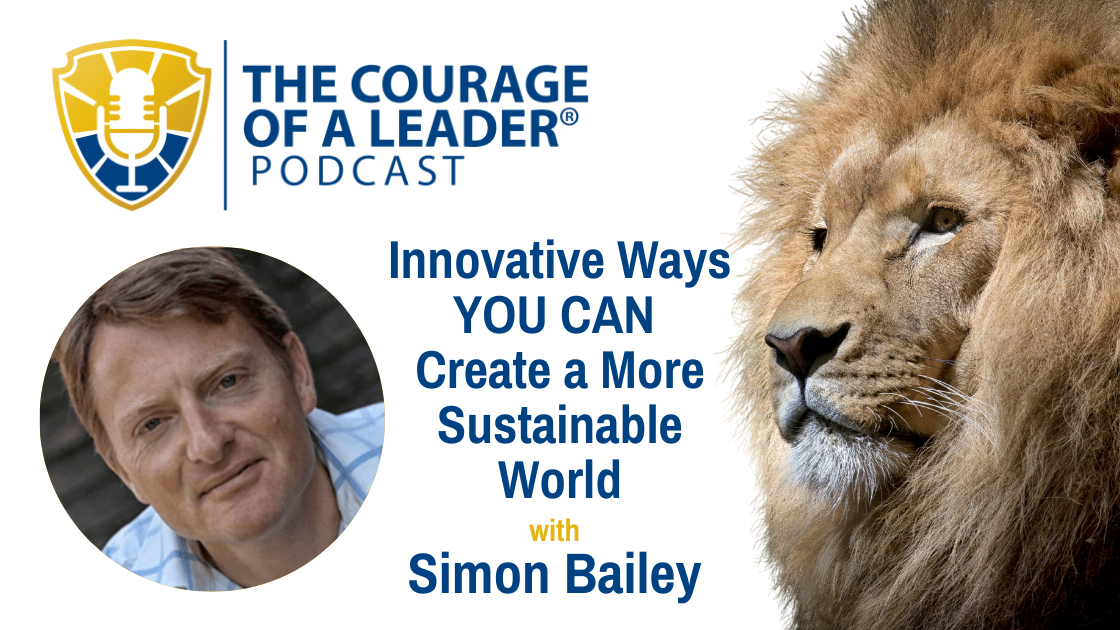
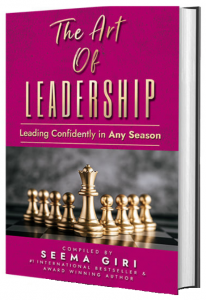
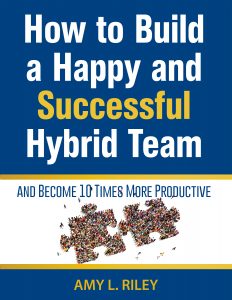
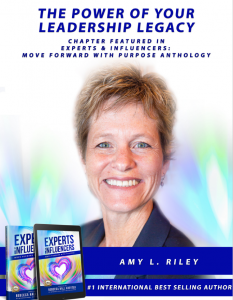
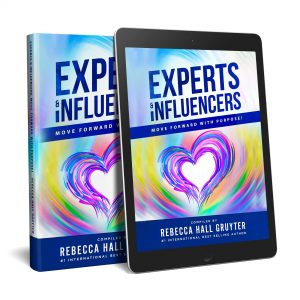
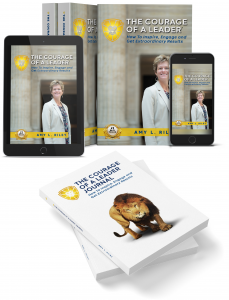
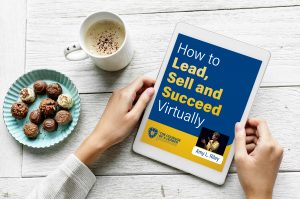
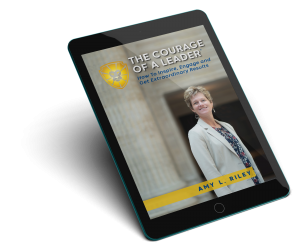
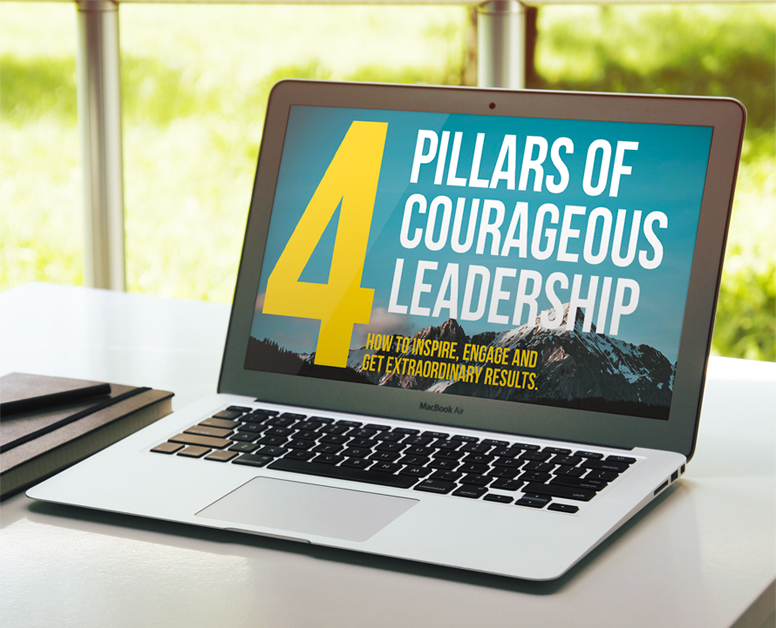 A Summary of The Courage of a Leader® 4 Pillars
A Summary of The Courage of a Leader® 4 Pillars